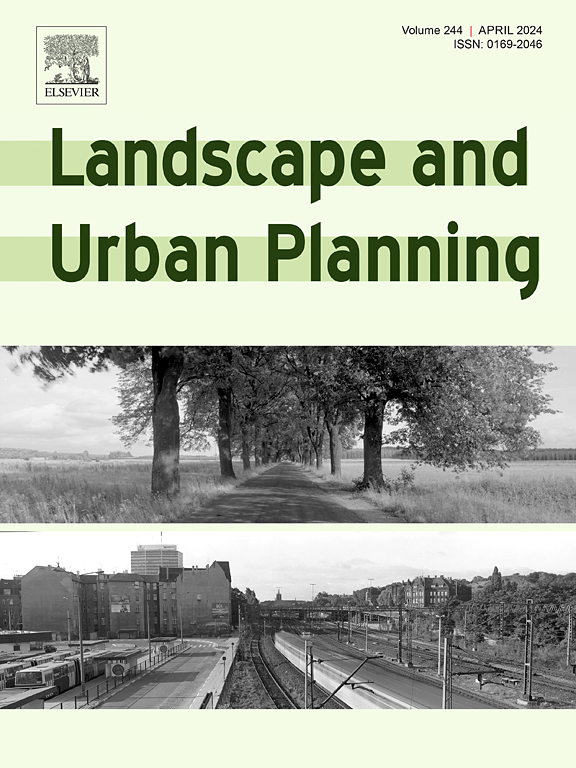种植蔬菜:家庭菜园生物多样性的门户?
IF 9.2
1区 环境科学与生态学
Q1 ECOLOGY
引用次数: 0
摘要
作为城市中“自然”的重要代表,家庭花园是城市生态学和城市农业等多个学科的研究对象。然而,国内园丁的两个不同目标之间的潜在冲突,野生生物多样性保护和蔬菜生产,很少被检查。在本研究中,我们调查了在家庭菜园中种植蔬菜是否以及如何与生物多样性保护相关。我们使用两种互补的方法来解决这个问题:一种是全国范围内的在线调查,评估法国园丁的观念和实践,另一种是将调查数据与巴黎附近郊区家庭花园的生态监测相结合的小规模研究。本文章由计算机程序翻译,如有差异,请以英文原文为准。
Growing vegetables: A gateway to biodiversity in domestic gardens?
As a key representative of ‘nature’ in cities, domestic gardens are the subject of research in several disciplines, including urban ecology and urban agriculture. However, the potential conflicts between two distinct objectives for domestic gardeners, wild biodiversity conservation and vegetable production, are rarely examined. In this study, we investigate whether and how growing vegetables relates to the conservation of biodiversity in domestic gardens. We approached this question using two complementary methods: a nationwide online survey assessing the perceptions and practices of a stratified sample of French gardeners, and a smaller-scale study combining survey data with ecological monitoring of domestic gardens in a suburban area near Paris.
Vegetable gardening remains a common practice in France, with 67% of nationwide surveyed gardeners having a vegetable garden (‘Vegetable gardeners’). Our results revealed no significant conflict between vegetable production and biodiversity conservation among French gardeners. On the contrary, several synergies emerged, particularly in the attitudes of vegetable gardeners, whose commitment to their gardens, the wild species within them, and nature as a whole appeared stronger than that of other gardeners. Synergies also appeared in their practices, such as more frequent planting, which may increase the diversity of ornamental flowers and provide resources for pollinating insects. Our study shows how vegetable gardening is associated with distinct practices, although their effects on biodiversity are neither clearly synergistic nor antagonistic. It thus argues for a more rigorous consideration of food production in urban ecology research on domestic gardens.
求助全文
通过发布文献求助,成功后即可免费获取论文全文。
去求助
来源期刊

Landscape and Urban Planning
环境科学-生态学
CiteScore
15.20
自引率
6.60%
发文量
232
审稿时长
6 months
期刊介绍:
Landscape and Urban Planning is an international journal that aims to enhance our understanding of landscapes and promote sustainable solutions for landscape change. The journal focuses on landscapes as complex social-ecological systems that encompass various spatial and temporal dimensions. These landscapes possess aesthetic, natural, and cultural qualities that are valued by individuals in different ways, leading to actions that alter the landscape. With increasing urbanization and the need for ecological and cultural sensitivity at various scales, a multidisciplinary approach is necessary to comprehend and align social and ecological values for landscape sustainability. The journal believes that combining landscape science with planning and design can yield positive outcomes for both people and nature.
 求助内容:
求助内容: 应助结果提醒方式:
应助结果提醒方式:


